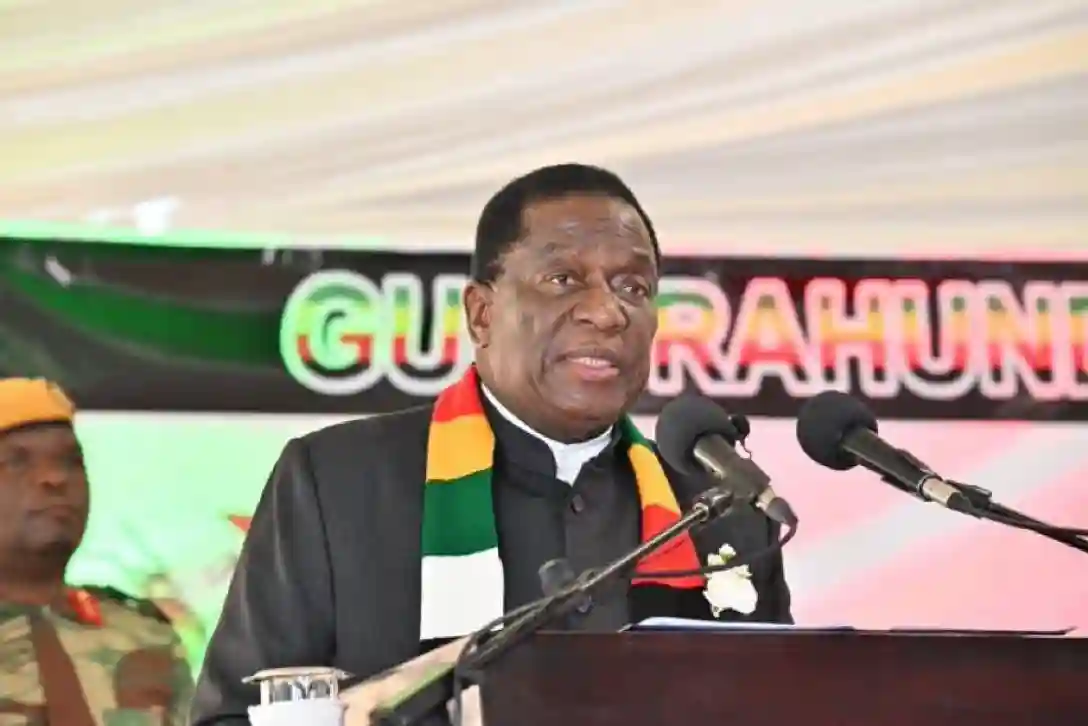President Emmerson Mnangagwa has reiterated Zimbabwe’s status as a unitary state, saying the Gukurahundi episode serves as a stark reminder of the fragility of national unity and the devastating consequences of disunity.
Speaking at the launch of the Gukurahundi Community Engagement Outreach Programme in Bulawayo on Sunday, Mnangagwa acknowledged the critical role played by the late former President Robert Mugabe and Vice President Joshua Nkomo in forging national unity through the Unity Accord.
The Unity Accord was a political agreement signed in 1987 between the ruling ZANU party and the opposition ZAPU party, effectively ending the Gukurahundi massacres.
The Unity Accord merged ZANU and ZAPU into a single political party – the Zimbabwe African National Union-Patriotic Front (ZANU PF).
The agreement also established a power-sharing arrangement, with Mugabe becoming the Executive President and Nkomo becoming one of the Vice Presidents. Said Mnangagwa:
Behind us lies a past etched with both triumph and hardship. The echoes of the liberation struggle still evoke strong emotions and memories, a testament to the unwavering spirit that forged our nation.
Yet, within that history is a chapter which cannot be ignored – the post-independence conflict in this Region.
This chapter serves as a stark reminder of the fragility of unity and the devastating consequences of disunity.
We owe a debt of eternal gratitude to our nation’s founding fathers, the late President Robert Gabriel Mugabe and the late Father Zimbabwe Cde. Joshua Mqabuko Nkomo, for defying seemingly insurmountable obstacles and forging the Unity Accord of 1987.
This Unity Accord shall remain as the foundation of our unity and the emblem of our unitary State. Today, we are building on that foundation and cementing our unity, which we commit to guard jealously as our birthright in this sacred nation.
Mnangagwa emphasized that the Gukurahundi Community Engagement Outreach Programme will be led by traditional leaders. He said:
Today we are gathered to officially launch the Gukurahundi Community Outreach Programme. This exercise is not simply a mechanism for revisiting grievances but it is a transformative odyssey, a pilgrimage towards healing and national cohesion.
This initiative is a potent symbol of our collective will to bridge the divides that have separated us for too long. It places the onus of healing squarely on the shoulders of its most capable custodians – our esteemed Chiefs.
With their knowledge of tradition and wisdom, they will guide us through open dialogue, fostering empathy and understanding.
As we share our stories, the wounds of the past will begin to mend, thereby enabling national healing.
President Mnangagwa accused the country’s former colonial rulers of sowing the seeds of disunity in Zimbabwe by pitting one ethnic group against another.
Mnangagwa’s remarks suggest that the colonial legacy and the divisive policies implemented during that era contributed to the underlying tensions and conflicts that ultimately led to the Gukurahundi atrocities.
This accusation places responsibility for the tragedy on external forces, rather than solely on the actions of the post-independence Zimbabwean government.
More: Pindula News

